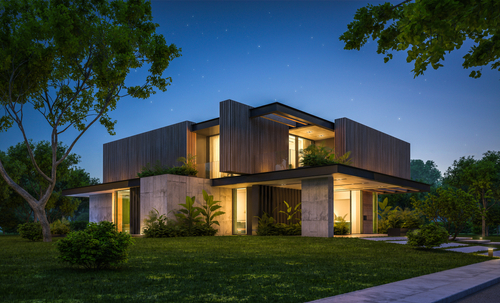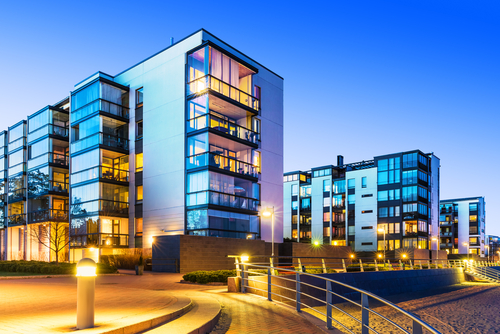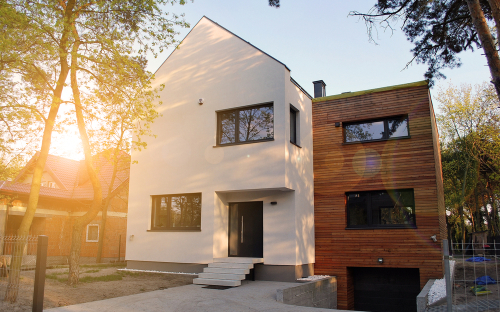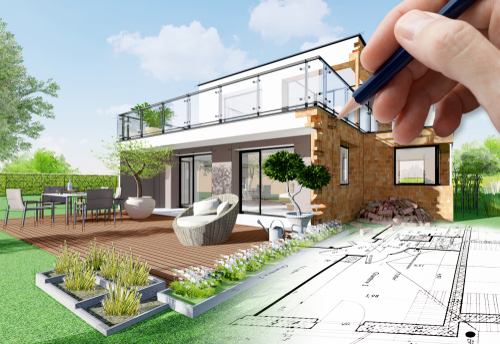In response to these challenges, the European Union has prepared the European Green Order Strategy, which entered into force in 2020. Its most important point is achieving climate neutrality by 2050, understood as zeroing greenhouse gas emissions to the net atmosphere. The goals and assumptions of the European Green Order strategy significantly influenced the creation and direction of the project of the National Centre for Research and Development Energy and process-efficient construction. It is one of eight projects carried out by the Centre, focusing on solutions related to fundamental human needs, such as ensuring food, good living conditions and clean water and air. A comprehensive approach to the problem is of key importance here. It combines the construction of an effective and emission-free energy system with a circular economy so as to provide economic benefits and improve the quality of life.
A new dimension of construction
It is estimated that in Poland in the coming years the supply of flats should be increased by approximately 60,000–70,000 annually more than what the market offers today. The implementation of the project of prefabricated/modular buildings to facilitate the life of Polish families also concerns using and increasing the export potential of Polish producers. All this, according to the principle: "let's send Polish products abroad, not people to construction sites", will have a positive impact on our economy.



Currently built houses consume a lot of energy. Their construction requires a lot of work and materials, and their daily use generates high costs. Over the next 3 years, the NCRD wants to develop a technology for designing and building low-maintenance, modular single- and multi-family buildings. It is planned that these houses will generate optimally a zero or positive annual energy consumption balance. The construction of the facility itself will be slightly more expensive due to the costs of energy production and water management systems. However, it will be significantly reduced thanks to prefabrication. On the other hand, the use of the building will be almost cost-free, due to its energy self-sufficiency. It is crucial in striving to develop towards climate neutrality and reduce the use of resources. As a result, when calculating the cost of constructing and maintaining the building over many years, the new technologies will be much cheaper than those currently used.
Innovative buildings to be constructed on the initiative of the National Centre for Research and Development will be entirely made of prefabricated elements or spatial modules. Due to this fact, ready-made elements will be delivered to the construction site, from which structures will be erected very quickly. The materials used to create them will be obtained from, among other sources, recycling. Such a procedure is to reduce the extraction of raw materials and have a positive impact on their cost. Power in such houses will come from local renewable energy sources, which will reduce the significant costs of energy distribution. Drinking water is to be recovered from rainwater and treated at local plants. The projects are to focus on modern design and functionality. Their implementation will reduce the carbon footprint over the entire life cycle of the building. The development of modular/prefabricated technologies and climate-neutral technologies will reduce operating costs and allow buildings to be commissioned faster. Potential buyers will even be able to receive turnkey houses with all installations and equipment. It is also worth mentioning the optimized charges to be calculated considering the operating costs for the next 30 years.
 The activities of the National Centre for Research and Development will allow to meet the housing needs for families and seniors. The concept itself can also be multiplied for other social groups, because this technology can be used for public buildings. The applied technologies allow the process of erecting buildings to be accelerated while reducing the operating costs, especially of single-family houses and small multi-family houses. This will affect the development of the government's Flat+ and Senior Housing programs. It should be emphasized that the developed solutions will ensure energy independence of flats, and this will reduce the costs of their operation. In addition, new buildings are to meet the criteria of climate neutrality. The benefits of the new construction technology will be felt not only by the inhabitants, but also by the Polish economy. The project will make it possible to export ready-made houses with equipment to foreign markets. This, in turn, will allow the creation of new job vacancies in Poland.
The activities of the National Centre for Research and Development will allow to meet the housing needs for families and seniors. The concept itself can also be multiplied for other social groups, because this technology can be used for public buildings. The applied technologies allow the process of erecting buildings to be accelerated while reducing the operating costs, especially of single-family houses and small multi-family houses. This will affect the development of the government's Flat+ and Senior Housing programs. It should be emphasized that the developed solutions will ensure energy independence of flats, and this will reduce the costs of their operation. In addition, new buildings are to meet the criteria of climate neutrality. The benefits of the new construction technology will be felt not only by the inhabitants, but also by the Polish economy. The project will make it possible to export ready-made houses with equipment to foreign markets. This, in turn, will allow the creation of new job vacancies in Poland.

The National Centre for Research and Development plans that the project financed by the European Union under the European Regional Development Fund will last three years. It will cost PLN 37.5 million. Nine companies selected for this project will have nine months to develop the technology and agree on the location of the four houses presenting the concepts developed. The top six companies will qualify for the next stage. For the next six months, they will have to develop the technology and design prototype buildings using solutions developed as part of research and development. It is to be one social facility, one senior house and two single-family buildings for families with children. In the final phase, four companies will implement their plans. The buildings are to be ready by November 30, 2023.
The project is implemented as part of a non-competitive project entitled Raising the level of innovation in the economy by implementing research projects under the innovative public procurement procedure in order to support the implementation of the European Green Order strategy (under sub-measure 4.1.3 Innovative methods of research management of the Intelligent Development Operational Programme).
NCBR Editors